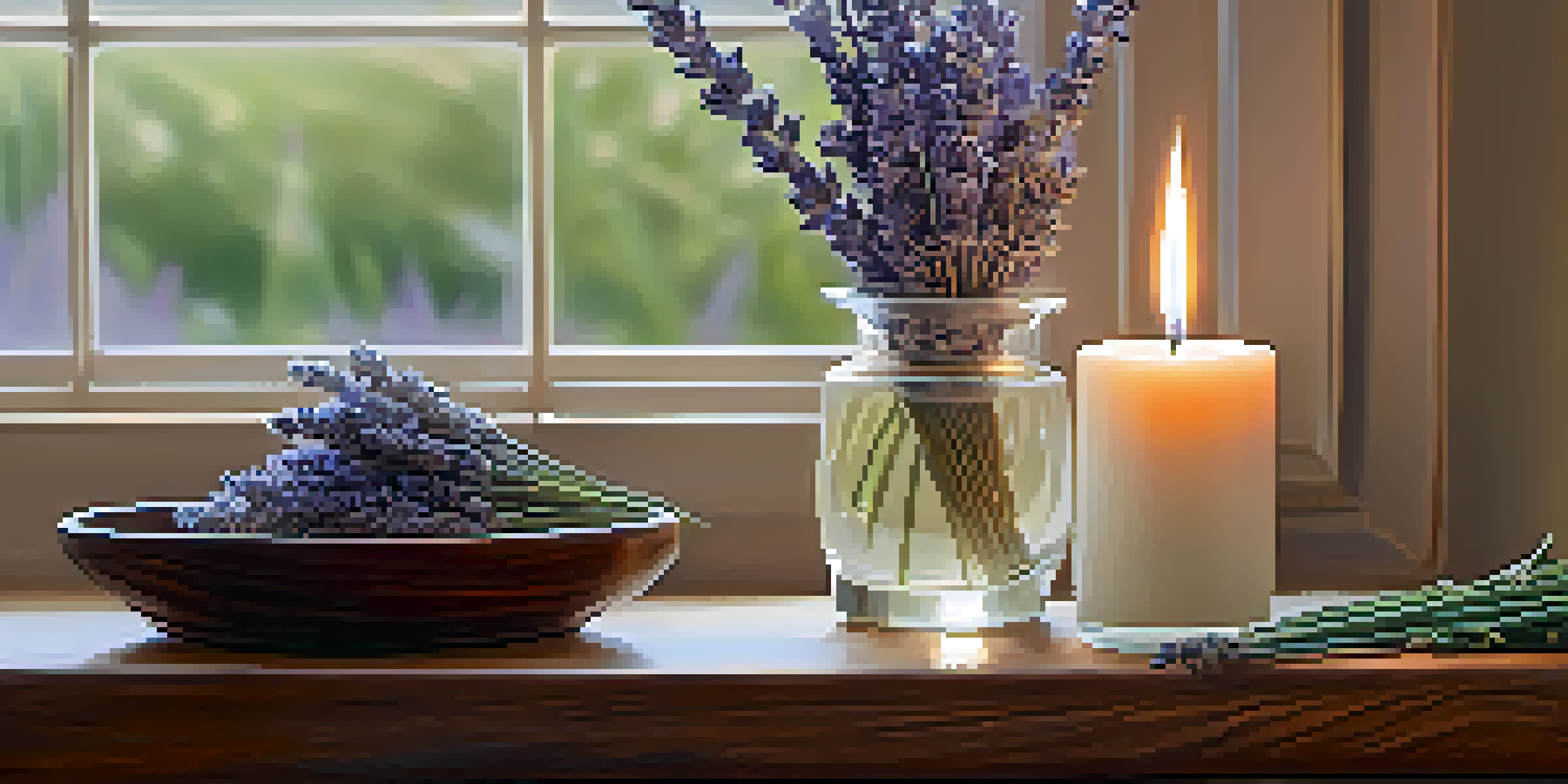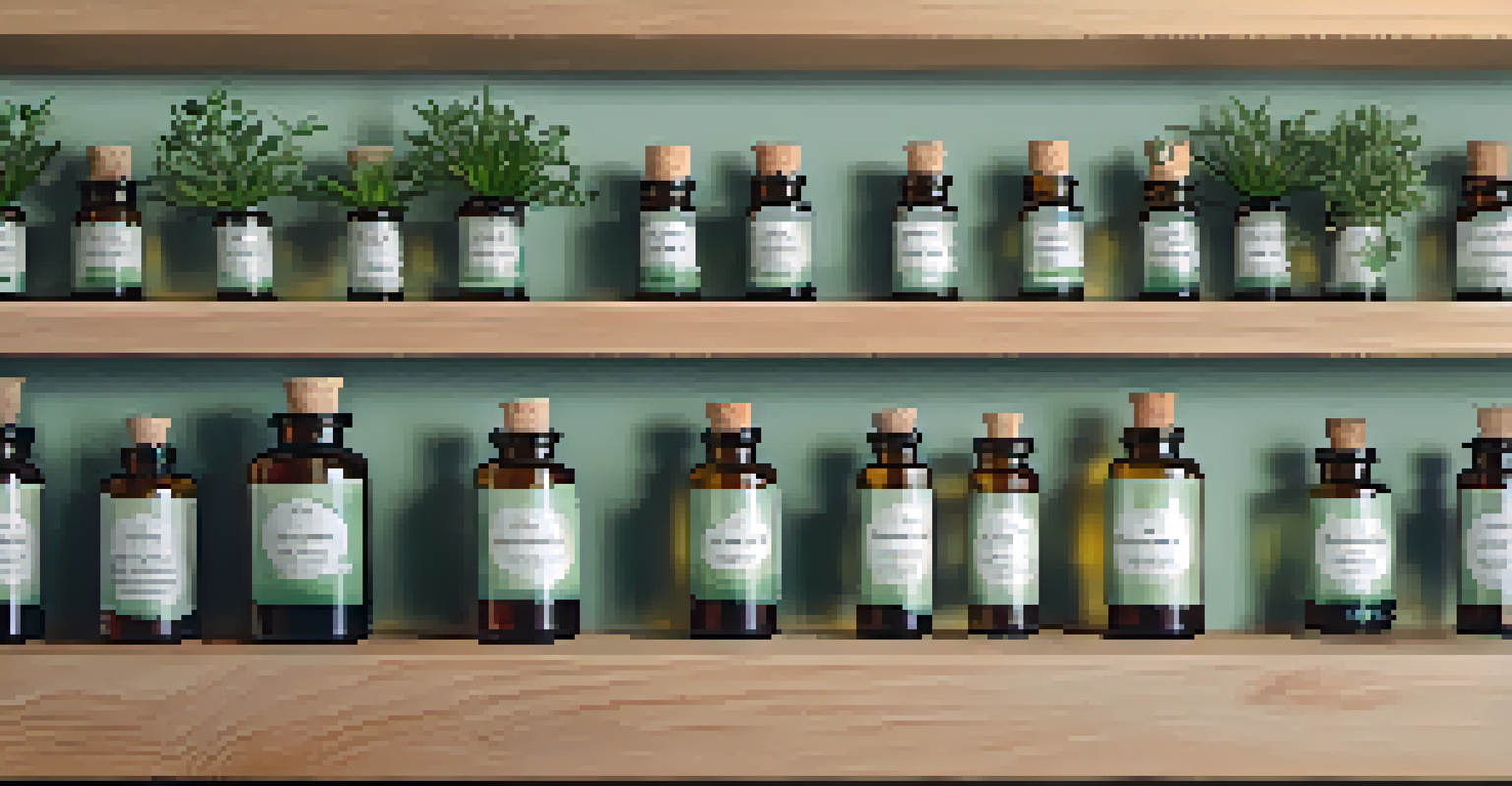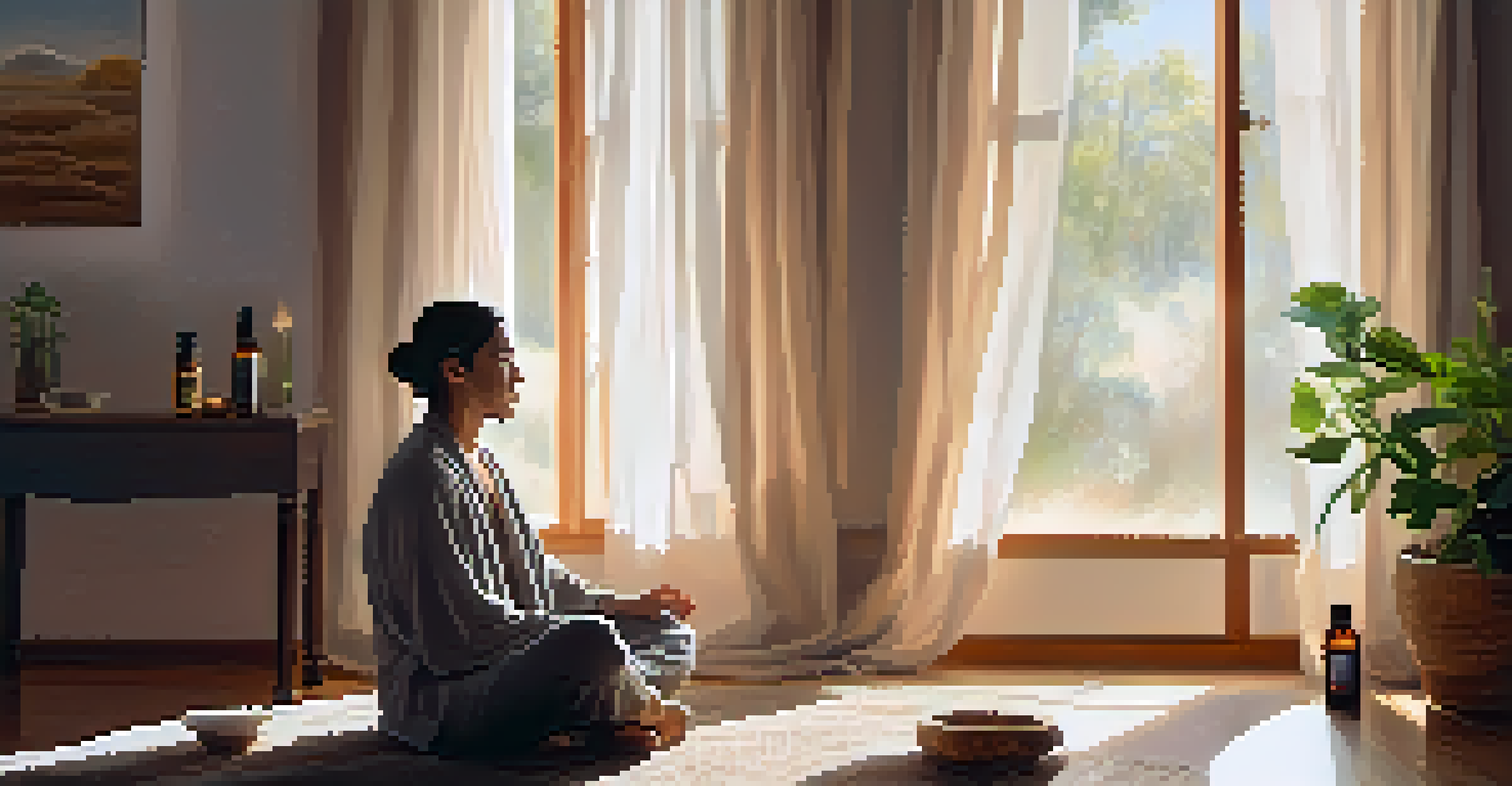The Science Behind Aromatherapy and Its Healing Properties

What is Aromatherapy and How Does It Work?
Aromatherapy is a holistic healing practice that uses essential oils extracted from plants to promote physical and emotional well-being. The scents of these oils interact with our brain's limbic system, which is responsible for emotions and memories. This connection is why a particular fragrance can instantly transport you to a cherished memory or help you feel relaxed after a stressful day.
Aromatherapy is a bridge between the physical and emotional realms, creating a holistic approach to wellness.
Essential oils can be inhaled, diffused, or applied topically, making them versatile tools for enhancing your mood or alleviating discomfort. For instance, lavender is known for its calming properties, making it a popular choice for those seeking relaxation. On the other hand, peppermint is invigorating and often used to boost energy levels.
Understanding how aromatherapy works at a biological level can enhance its effectiveness. When inhaled, these scents can trigger neurotransmitters and hormones in our bodies, influencing our overall health. Thus, aromatherapy is not just about pleasant smells; it's a scientifically-backed approach to well-being.
The Chemistry of Essential Oils: Nature's Healing Agents
Essential oils are complex mixtures of natural compounds that give plants their unique scents and properties. These compounds include terpenes, esters, and phenols, each with distinct effects on our health. For example, the terpene limonene, found in citrus oils, has been shown to have mood-lifting properties.

The extraction of these oils can be done through methods like steam distillation or cold pressing, preserving their therapeutic qualities. This careful process ensures that the oils retain their beneficial properties, making them effective for various applications, from skincare to emotional support.
Aromatherapy Enhances Well-Being
Aromatherapy uses essential oils to promote physical and emotional health through scent interactions with our brain.
By understanding the chemistry of essential oils, you can choose the right oil for your needs. Whether you're seeking relaxation, pain relief, or a mood boost, knowing the specific compounds can help you harness the full potential of these natural remedies.
Exploring the Benefits of Aromatherapy for Mental Health
Mental health is a growing concern in today's fast-paced world, and aromatherapy offers a natural way to support emotional well-being. Scents like bergamot and chamomile have been linked to reduced anxiety and improved mood. This is particularly beneficial for those dealing with stress or depression.
The use of essential oils for therapeutic purposes dates back thousands of years, and modern science is only beginning to uncover their true potential.
Incorporating essential oils into your daily routine can create a calming atmosphere that promotes relaxation. For instance, diffusing lavender oil before bedtime can help signal to your body that it's time to wind down, improving sleep quality. The ritual of using these oils can also be a form of self-care, enhancing your overall mental state.
Research has shown that aromatherapy can be an effective complementary therapy alongside traditional treatments. While it shouldn't replace professional help, it can be a valuable tool to help manage symptoms and enhance emotional resilience.
Physical Health Benefits: Pain Relief and Beyond
Aromatherapy is not only beneficial for mental health; it also offers a range of physical health benefits. Many essential oils have anti-inflammatory and analgesic properties, making them effective for pain relief. For example, eucalyptus oil is often used to alleviate headaches and muscle pain.
Additionally, oils like tea tree and oregano have antimicrobial properties that can boost your immune system. This makes them popular choices during cold and flu season. When used in a massage oil or a warm bath, these essential oils can enhance relaxation while also providing relief from physical discomfort.
Essential Oils: Nature's Remedies
The complex compounds in essential oils, like terpenes and esters, provide unique health benefits and therapeutic properties.
Using aromatherapy for physical ailments can be a gentle alternative to over-the-counter medications. However, it's essential to consult with a healthcare professional to choose the right oils and methods for your specific needs.
Aromatherapy in Practice: How to Get Started
Getting started with aromatherapy is simple and accessible for everyone. First, you'll want to choose high-quality essential oils from reputable sources. Look for oils that are labeled as pure and organic, ensuring they are free from synthetic additives. Popular starter oils include lavender, eucalyptus, and tea tree.
Next, consider how you want to use these oils. A diffuser is a popular option for dispersing scents throughout your space, while topical applications can be done with carrier oils to dilute the potency. Always perform a patch test to check for skin sensitivities before applying directly to your skin.
As you explore different oils and their effects, keep a journal to track your experiences. This can help you identify which scents work best for your unique needs, creating a personalized aromatherapy practice that enhances your daily life.
Safety Precautions: Using Essential Oils Wisely
While aromatherapy is generally safe, it's crucial to use essential oils responsibly. Some oils can cause skin irritation, especially when applied undiluted. Always mix essential oils with a carrier oil, such as coconut or jojoba oil, before applying them to your skin to minimize the risk of adverse reactions.
Pregnant women, children, and individuals with certain health conditions should exercise caution when using essential oils. It's best to consult with a healthcare provider before starting any new aromatherapy regimen to ensure safety.
Safety in Aromatherapy Practices
Using essential oils responsibly is crucial; proper dilution and consultation with healthcare providers can prevent adverse effects.
Reading up on each oil's specific guidelines and contraindications can also help you make informed choices. By prioritizing safety, you can fully enjoy the therapeutic benefits of aromatherapy without unnecessary risks.
The Future of Aromatherapy: Trends and Research
The interest in aromatherapy continues to grow, with ongoing research exploring its potential benefits. Studies are increasingly examining the efficacy of essential oils in various settings, including hospitals and wellness centers, to support patient care and recovery.
Emerging trends also include the integration of aromatherapy with modern technologies, such as smart diffusers that can adjust scent levels based on your mood or environment. This innovation could make aromatherapy even more accessible and tailored to individual needs.

As science continues to uncover the many ways aromatherapy can enhance our lives, it's an exciting time for enthusiasts and newcomers alike. The combination of traditional knowledge and modern research promises to deepen our understanding of this ancient practice and its place in holistic health.